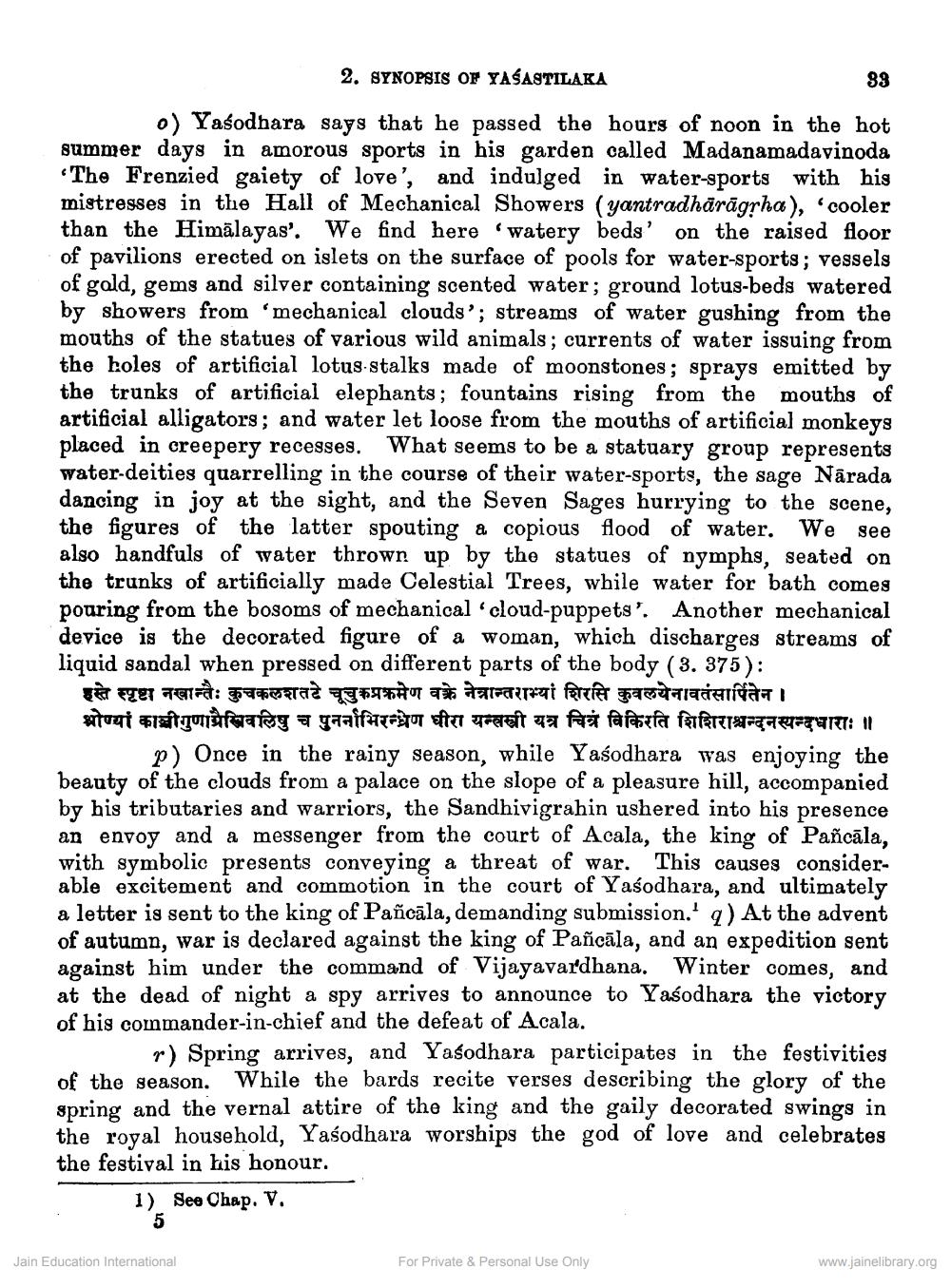________________
2. SYNOPSIS OF YASASTILAKA
83
o) Yasodhara says that he passed the hours of noon in the hot summer days in amorous sports in his garden called Madanamadavinoda "The Frenzied gaiety of love', and indulged in water-sports with his mistresses in the Hall of Mechanical Showers (yantradhärägṛha), 'cooler than the Himalayas'. We find here watery beds' on the raised floor of pavilions erected on islets on the surface of pools for water-sports; vessels of gold, gems and silver containing scented water; ground lotus-beds watered by showers from 'mechanical clouds'; streams of water gushing from the mouths of the statues of various wild animals; currents of water issuing from the holes of artificial lotus stalks made of moonstones; sprays emitted by the trunks of artificial elephants; fountains rising from the mouths of artificial alligators; and water let loose from the mouths of artificial monkeys placed in creepery recesses. What seems to be a statuary group represents water-deities quarrelling in the course of their water-sports, the sage Narada dancing in joy at the sight, and the Seven Sages hurrying to the scene, the figures of the latter spouting a copious flood of water. We see also handfuls of water thrown up by the statues of nymphs, seated on the trunks of artificially made Celestial Trees, while water for bath comes pouring from the bosoms of mechanical 'cloud-puppets'. Another mechanical device is the decorated figure of a woman, which discharges streams of liquid sandal when pressed on different parts of the body (3. 375):
हस्ते स्पृष्टा नखान्तैः कुचकलशतटे चूचुकप्रक्रमेण वक्रे नेत्रान्तराभ्यां शिरसि कुवलयेनावतंसार्पितेन । suai aieftgunìfsaßg a gazifuczko du grad za fi fafazia fafınızzzzerZTIRI: ||
p) Once in the rainy season, while Yasodhara was enjoying the beauty of the clouds from a palace on the slope of a pleasure hill, accompanied by his tributaries and warriors, the Sandhivigrahin ushered into his presence an envoy and a messenger from the court of Acala, the king of Pañcāla, with symbolic presents conveying a threat of war. This causes considerable excitement and commotion in the court of Yasodhara, and ultimately a letter is sent to the king of Pañcāla, demanding submission.' q) At the advent of autumn, war is declared against the king of Pañcala, and an expedition sent against him under the command of Vijayavardhana. Winter comes, and at the dead of night a spy arrives to announce to Yasodhara the victory of his commander-in-chief and the defeat of Acala.
r) Spring arrives, and Yasodhara participates in the festivities of the season. While the bards recite verses describing the glory of the spring and the vernal attire of the king and the gaily decorated swings in the royal household, Yasodhara worships the god of love and celebrates the festival in his honour.
1) See Chap. V.
5
Jain Education International
For Private & Personal Use Only
www.jainelibrary.org




